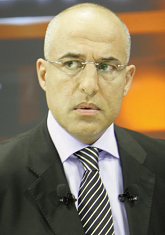
Ziad E F Noujeim
Lebanese University, Lebanon
Title: Problem-based learning-PBL: A Dentistry trend for today’s lifestyle
Biography
Biography: Ziad E F Noujeim
Abstract
Over the past three decades, many dental schools, worldwide, have introduced Problem-Based Learning-PBL-in their programs. One of the main reasons for change has included the obvious dissatisfaction of dental students with the conventional model of dental education. PBL was introduced in its modern form at McMaster University Medical School in Canada, in the 1960s, and as applied now, the problem comes first, before any formal study or relevant literature review: this learning method is student-centered, i.e., students are directly involved in deciding what and how they will learn. In this tutorial-like learning, students are guided by a facilitator, and the learning takes place in relatively small groups. PBL contrasts with conventional educational approaches to dental education that are usually teacher-centered rather than student-centered. This method fulfills three important principles related to the development of new knowledge, namely, activation of prior knowledge, elaboration of knowledge, and encoding specificity. It also improves clinical and diagnostic reasoning ability, and fosters development of skills and attributes that oral health professionals will need in the future. PBL tutorial identifies cues in the dental problem presentation, formulates a coherent statement about it, generates hypotheses that arise out of the cues, decides on an inquiry plan, and discusses the final treatment planning and its implementation. Our specialized PBL workshop will focus on dental analgesia difficulties, dental and oral diseases, and jaw disorders. During 120 minutes, this method will help participants integrating knowledge with daily dental practice, nurtures their ability to analyze dental problems, and develops teamwork and communication skills in their minds. Ultimately, PBL meets dentistry trends for today’s lifestyle by cultivating mind independence, scientific curiosity, and necessary skills for self-directed, life-long learning. With PBL applied in dentistry, oral health providers are able to provide the highest standards of dental care in a proficient, professional, caring, and ethical manner.
Recent Publications
- Abdelkarim A, Schween D and Ford T (2018). Attitudes towards Problem-Based Learning of Faculty Members at 12 U.S. Medical and Dental Schools: A Comparative Study J Dent Educ. 82(2):144-151.
- Chuenjitwongsa S, Oliver RG and Bullock AD (2017). Developing educators of European undergraduate dental students: Towards an agreed curriculum. Eur J Dent Educ.
- Von Bergmann H, Walker J, Dalrymple KR and Shuler CF(2017). Dental Faculty Members' Pedagogic Beliefs and Curriculum Aims in Problem-Based Learning: An Exploratory Study. J Dent Educ. 81(8):937-947.
- Bai X, Zhang X, Wang X, Lu L, Liu Q and Zhou Q (2017). Follow-up assessment of problem-based learning in dental alveolar surgery education: a pilot trial. Int Dent J. 67(3):180-185.
- Hoffman GR and Sasidharan P (2016). A Medical School Elective Can Promote an Interest in and an Exposure to the Scope of Oral and Maxillofacial Surgery: Education, Exemplars, and Electives. J Oral Maxillofac Surg. 74(4):665-7.

